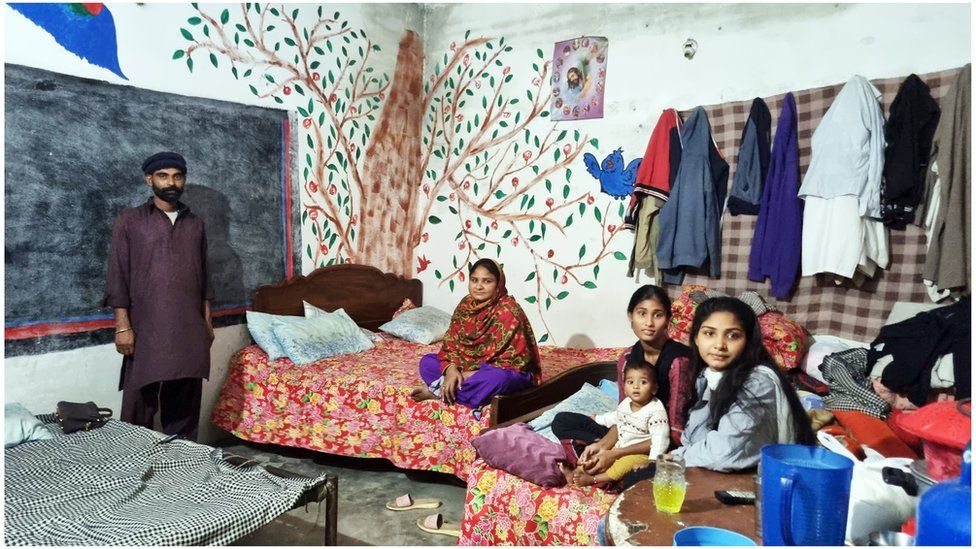-

-
-
Loading

Loading

Asif Maseeh, a daily-wage laborer in Pakistan, wakes up every day worried about how he will feed his family of seven. He is among the estimated 700,000 workers who have lost their jobs due to the closure of clothing factories in the country. This represents a third of the textile factories in Pakistan, which account for 60% of the country's export earnings. After losing his job at a factory that produced clothes for global fashion brands, Mr. Maseeh now does manual work and drives an autorickshaw to make ends meet. He and his wife are working long hours to provide for their five children, none of whom are able to attend school. The rising cost of living has made it increasingly difficult for them to afford even basic necessities. Pakistan is currently facing an economic crisis, prompting the country to seek bailout funds from the International Monetary Fund (IMF) for the 23rd time since 1958. The interim finance minister has even hinted at the possibility of seeking an additional IMF loan due to the fragile state of the economy. In addition to the economic crisis, Pakistan is grappling with soaring inflation, energy price hikes, and an upcoming general election. Industrialists in Pakistan's largest city, Karachi, have threatened to shut down production unless the government reverses gas tariff hikes. Many Pakistanis have been forced to seek additional sources of income as the prices of essential commodities continue to rise. Pakistan's poor and working class have been particularly affected by the economic situation. Essential food items have more than doubled in cost in recent years, making it increasingly difficult for families to afford basic necessities. Pakistan has also faced challenges such as political crises, devastating floods, and security threats from Islamist militants. Despite its potential as an attractive investment destination, Pakistan's image has suffered due to concerns over law and order and the overall business environment. The country's foreign exchange reserves have depleted significantly, and it has relied on emergency funding from the IMF and support from allies to bolster its reserves. China, in particular, has been a significant investor in Pakistan through the China-Pakistan Economic Corridor (CPEC) under the Belt and Road Initiative. However, concerns remain about whether the investments will generate enough revenue to pay back Chinese loans. Overall, the next government in Pakistan will face the challenging task of reviving the economy and addressing the needs of its citizens.